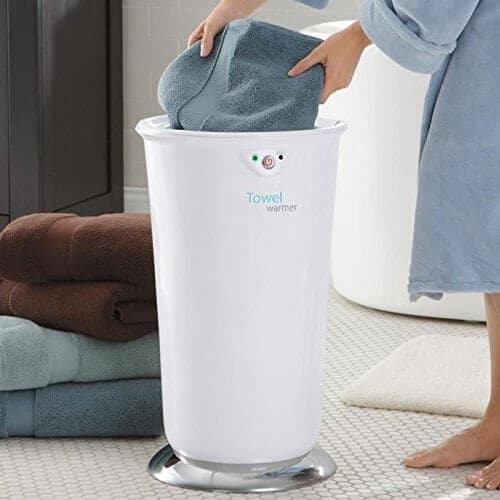In the US, you must adhere to strict compliance protocols to run a successful pharmaceutical facility. Regardless of size, any medical facility should adhere to the strict laid out healthcare programs. So, what does it take for a pharmaceutical facility to be compliant? According to the stats, new pharmacies are facing challenges relating to compliance. In fact, compliance is scaring more and more facilities from doing business. If you don’t want scrutiny from bodies such as DEA and PBMs, you must be confident with your compliance efforts. In particular, you must roll out custom-tailored compliance programs. Among other things, this pharmacy compliance program is aimed at protecting patients from malpractices, avoiding costly mistakes, and eliminating liabilities when it comes to audits, inspections, as well as investigations.
Compliance for Pharmacies
Pharmacy compliance is divided into numerous aspects. Common ones include:
- DEA compliance
- Federal healthcare based billing compliance
- PBM compliance
The following guide is going to take you through these categories—helping you have an easy time when it comes to applying for compliance.
Drug Enforcement Administration Compliance
DEA, an abbreviation for the Drug Enforcement Administration, is concerned with regulating the acquisition of pharmacies, prescriptions, the dispensation of drugs, as well as proper distribution practices. The DEA is mandated to register all pharmaceutical establishments. Among other things, it conducts periodic audits, inspections, and assesses their compliance according to their CSA, DSCSA, etc. So, if you don’t those annoying civil and criminal actions, you must fully comply with the federal laws in regard to the following laws:
Prescription Drug and Ordering
Pharmacies compliance isn’t a one stage process. It involves all stages. From the prescription lifecycle to dispensing, everything should be done in accordance with the law. Even more, for proper compliance, pharmacies should use the right procedure (i.e. DEA form 222). Also, the form must be completed correctly and documented accordingly. Proper documentation ensures that all the orders (either received or placed) are tracked correctly and meticulously. Additionally, your firm should also comply with the DSCSA.
Drug Based Prescriptions and Inventory Management
DEA audits as well as inspections put a lot of focus on inventory management. That’s why pharmaceuticals are obliged to maintain an updated inventory of all their medications. Also, you are advised to store all your inventory-related records for at least two years. These inventories will be used to assess your compliance with the DEA rules. Those who fail to keep these records end up facing lawsuits or hurdles during compliance.
Prescription Management and Monitoring of Fraud
When it comes to filling prescriptions, it’s important to follow the DEA guidelines. In particular, the DEA advises pharmacists to prevent fraud. What this means is that you should enact policies as well as procedures that are able to meticulously assess how valid income prescriptions are. Plus, your procedures must also investigate the legitimacy of prescriptions before dispensing any drugs.
E-Prescription Compliance
When it comes to compliance, electronic prescription tends to be one of the most complex aspects. You will need complete devotion. Even more, you must be detail-oriented as far as your approach is concerned. The CSA has all the federal regulations necessary to handle your pharmacy’s electronic prescriptions. This starts with the choice you make when it comes to the software applications to the filing of the electronic prescriptions.
Prescription Drug Security
For pharmaceutical establishment compliance reasons, you are required to put in place physical as well as security-based controls. These controls are aimed at preventing medical prescription theft from your company or on transit. If you fail to put these prevention measures in place, you might be subjected to lawsuits. You will be considered reluctant when it comes to putting anti-theft security measures.
Drug Transfers and Disposals
Transfer or disposal of drugs requires strict compliance. These compliance obligations are strict in nature and numerous. Thus, you might face a lot of hurdles trying to comply with these compliance obligations. In particular, pharmaceuticals might decide to outsource disposal obligations. However, according to the DEA, accountability still remains with the pharmacy and not the other third party company. In a nutshell, you must comply fully—even when outsourcing these functions.
Recordkeeping
The US law requires all pharmaceutical establishments to stick to strict and comprehensive record-keeping procedures. That’s why you should expect the DEA to conduct periodic inspections and extensive record-keeping audits on your pharmacy. In these cases, you have an obligation to quickly produce all the required records. Also, you must display confidence regarding the authenticity of your records. Otherwise, you will find yourself on the wrong side of the law.
Drug Dispensing As Well As Diversion Control
Drug dispensing as well as diversion control is the last but important aspect of the DEA compliance. It’s important to note that prescription drug diversion is one of the most scrutinized parts when it comes to DEA compliance. This has been informed by the emergence of the opioid epidemic in the US. If you don’t comply, you might be subject to lawsuits regarding the facilitation of opioid diversion.
Pharmaceutical Federal Payor Compliance
Another important component of pharmacy compliance is billing. A comprehensive compliance program requires you to adhere to the rules and regulations of different billing programs. These programs include:
- Medicare federal healthcare program
- Medicaid federal healthcare program
- Tricare federal healthcare program
Each program comes with different rules and regulations. Understanding these rules is an important compliance step. In particular, you must have policies in place that address these programs. However, there are those rules that are similar to almost all programs. Here is a highlight of these rules and regulations.
- You must accurately code and reimburse requests
- You must stick to bundling as well as “upcoding” compliance
- Strict bookkeeping compliance. Ensure that your bookkeeping is accurate and up-to-date. Try to educate your staff on the best practices when it comes to bookkeeping.
- Double-billing federal programs
- Double billing federal private payors
You must stick to these regulations to achieve effective compliance. However, it’s important to study the individual rules of each program. It will boost your compliance.
The Bottom-Line
Pharmacy compliance isn’t an easy task. It requires effort and adhering to strict rules. The above information will help you tackle pharmacy compliance effectively.


